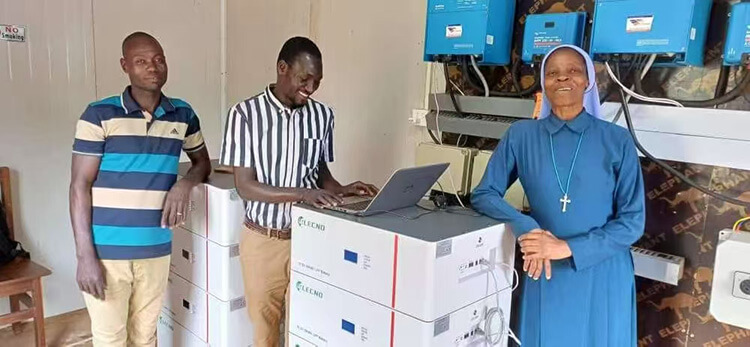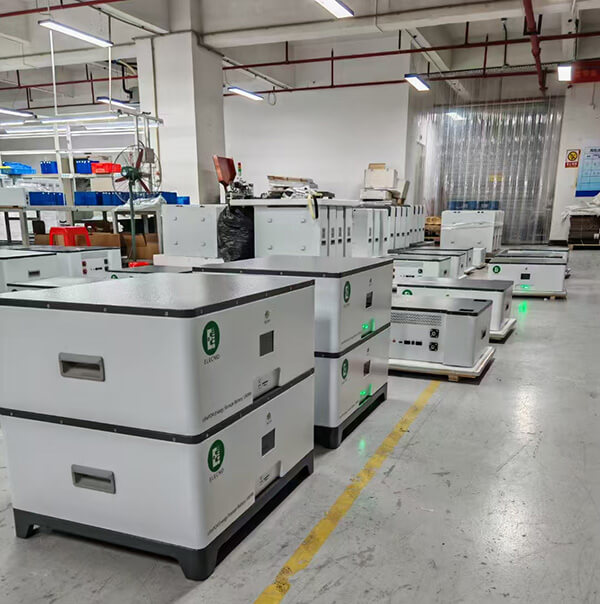Best Residential Battery Storage System: Your Guide to Sustainable Energy Solutions
With the growing demand for renewable energy and the rising costs of electricity, more homeowners are turning to residential battery storage systems to maximize their energy independence and reduce reliance on the grid. Whether you have a solar power system or are simply looking for a backup power source, choosing the best residential battery storage system can make a significant impact on your home's energy efficiency and sustainability.
In this guide, we’ll explore what makes a battery storage system the best choice for residential use, how to choose the right one for your needs, and the benefits it offers.
What is a Residential Battery Storage System?
A residential battery storage system is designed to store excess energy generated by solar panels or from the grid when electricity demand is low. The stored energy can then be used later when the demand is higher, or during power outages, ensuring your home stays powered without relying solely on the grid.
These systems are equipped with high-capacity batteries, most commonly lithium-ion or lithium iron phosphate (LiFePO4), which offer superior performance, safety, and durability compared to traditional lead-acid batteries.
Learn more about energy-efficient systems: Explore Solar Battery Storage Solutions

Why You Need the Best Residential Battery Storage System
1. Energy Independence
One of the main reasons to invest in a residential battery storage system is to reduce your reliance on the local utility grid. By storing excess solar power or purchasing electricity when prices are low, you can use this energy later when prices peak or during an outage. This energy autonomy is especially valuable in areas with frequent power cuts.
2. Cost Savings
A good residential battery storage system can significantly cut your energy bills. By using stored energy during peak hours, when the cost of electricity from the grid is highest, you can avoid paying higher rates. Additionally, many utility companies offer incentives or rebates for residential battery storage installations.
See how we can help you save energy: Cost-Effective Solar Solutions for Your Home
3. Backup Power During Outages
A battery storage system provides a reliable backup power source during emergencies. Whether it’s due to a storm, grid failure, or other unforeseen circumstances, a residential battery storage system ensures you won't be left without electricity.
4. Maximizing Solar Energy Use
If you already have a solar power system, a battery storage solution helps you use more of the energy your solar panels produce. This is particularly useful during cloudy days or at night, when solar energy generation is low but demand remains high.
Choosing the Best Residential Battery Storage System
When selecting the best residential battery storage system, several factors need to be considered to ensure you’re getting the most effective system for your needs:
1. Battery Capacity and Energy Needs
The first step in choosing the best system is determining how much energy you use on a daily basis. Battery capacity is typically measured in kilowatt-hours (kWh), and the larger the battery, the more energy it can store. Consider both your daily energy consumption and how long you want the battery to supply power during an outage.
Want more details on how battery capacity works?: Understanding Battery Storage and Sizing
2. Type of Battery
While there are various battery types available, lithium-ion batteries are the most popular for residential use due to their high energy density, long lifespan, and lower maintenance needs. Another great option is lithium iron phosphate (LiFePO4) batteries, known for their enhanced safety and durability.
Check out our lithium-ion battery options: Lithium Ion Battery Storage for Homes
3. Efficiency and Performance
The best residential battery storage systems are those that offer high efficiency and seamless integration with your home’s energy system. Look for systems that minimize energy loss during charging and discharging.
See our top-performing systems: High-Efficiency Solar Batteries
4. Warranty and Longevity
Since battery storage systems are an investment, it’s important to check the warranty and expected lifespan of the batteries. Most lithium-ion batteries have a lifespan of 10 to 15 years, and it’s essential to choose a system with a warranty that reflects the longevity of the product.
Best Residential Battery Storage Systems on the Market
Several top brands offer excellent residential battery storage systems, each with different features and benefits:
- Tesla Powerwall: Known for its sleek design and powerful performance, the Tesla Powerwall is one of the most popular choices for homeowners. It offers 13.5 kWh of capacity and integrates seamlessly with solar power systems.
- LG Chem RESU: LG’s RESU battery is compact, efficient, and ideal for residential use. It offers different capacity options, from 6.5 kWh to 13 kWh, and works well in both grid-connected and off-grid systems.
- Sonnen Eco: Sonnen’s Eco battery system is designed for both energy storage and energy management, offering smart features that optimize energy use. It also supports home automation systems, making it a good choice for tech-savvy homeowners.
- Elecno Battery-Box: This flexible and modular system allows homeowners to scale their battery capacity according to their energy needs. It’s ideal for large homes or those looking to expand their energy storage capacity in the future.

Compare top brands and systems: Residential Power Solutions
Installation and Maintenance Tips
1. Professional Installation
For safety and optimal performance, it’s essential to have your residential battery storage system installed by a certified professional. This ensures that all electrical connections are correct and that the system operates efficiently.
2. Regular Monitoring
Some systems come with apps that allow you to monitor battery performance in real-time. Regularly check your system to ensure it’s charging properly and that battery health is maintained.
3. Battery Maintenance
While lithium-ion batteries require minimal maintenance, it’s important to keep the battery clean and check for signs of wear, especially in areas with extreme temperatures.
Conclusion
Investing in the best residential battery storage system can significantly enhance your home’s energy efficiency, save you money, and provide peace of mind with backup power during emergencies. Whether you already have a solar system or are looking to add a reliable energy storage solution, choosing the right battery system will ensure that your home remains powered whenever you need it.
For more information on solar energy solutions, battery storage options, or how to get started with energy independence, feel free to reach out to us at Willekestadtman.

